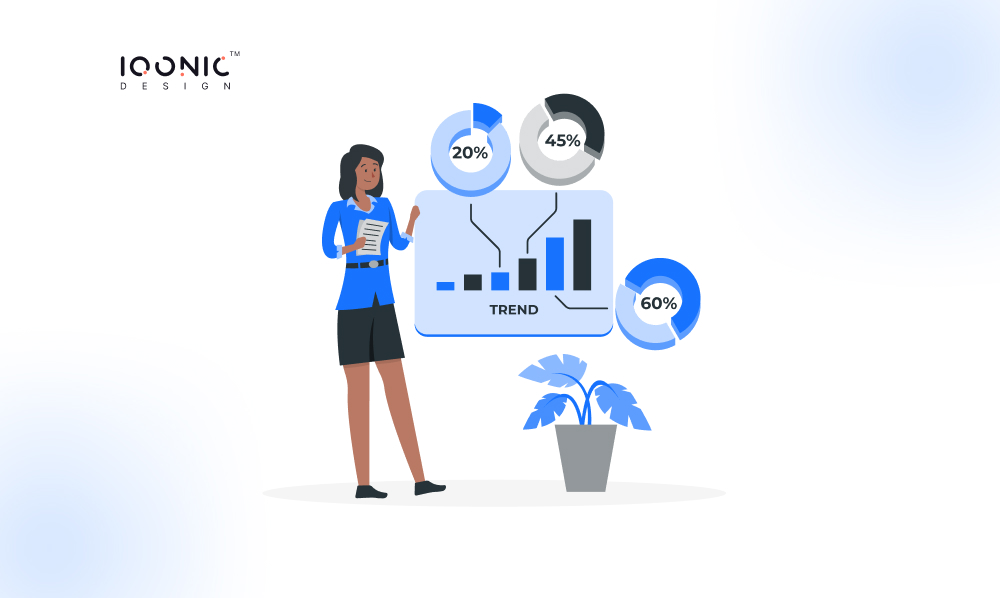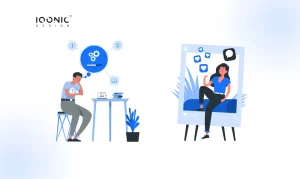
Is Flutter Right For Your Project? Pros and Cons Explained
Flutter App Development has gained significant popularity as a cross-platform app development framework, making it a hot topic among developers. Choosing the proper framework for your project is crucial, as it can significantly impact development efficiency and the final product’s quality.
Pros of Using Flutter
1. Single Codebase:
- Flutter App Development allows developers to write one codebase for both iOS and Android platforms.
- This eliminates the need to maintain separate codebases, saving time and effort.
- It ensures consistent functionality and design across both platforms.
2. Hot Reload:
- Hot reload is a game-changer for developers.
- Changes made in the code are instantly reflected in the app, making development faster.
- It speeds up debugging and experimentation, leading to a more efficient workflow.
3. Rich UI and Widgets:
- Flutter offers an impressive collection of customizable widgets.
- Widgets are like building blocks for your app’s user interface, making it easy to create visually appealing designs.
- Whether you need buttons, animations, or complex layouts, Flutter’s widget library covers you.
4. Performance:
- Flutter’s performance is top-notch, thanks to its compiled code.
- Apps built with Flutter run directly on the device’s hardware, delivering smooth and responsive user experiences.
- There’s no need for a bridge to communicate with native components, further enhancing performance.
5. Community and Ecosystem:
- Flutter’s community is thriving and growing rapidly.
- The community actively contributes to the Flutter, providing support, tutorials, and plugins.
- You can access a vast ecosystem of packages, simplifying complex tasks and expanding Flutter’s capabilities.
Incorporating these advantages into your Flutter App development process can lead to efficient, feature-rich, high-performance applications.
Cons of Using Flutter
1. Learning Curve:
- Flutter uses Dart as its programming language, which may not be familiar to many developers.
- Learning Dart can pose a challenge, especially for those coming from languages like JavaScript or Swift.
- Developers new to Dart might need some extra time to get up to speed with the language and Flutter’s framework.
2. App Size:
- Flutter apps tend to be more extensive compared to native apps.
- Flutter includes its rendering engine, which adds to the app’s size.
- Larger app sizes can affect download times and device storage space, particularly for users with limited storage.
3. Limited Native Features:
- While Flutter offers plugins to access native features, not all native capabilities may be fully accessible.
- Some advanced or niche functionalities might require extensive customization or even native development.
- It’s essential to assess whether your project heavily relies on specific native features that Flutter might not fully support.
4. Platformspecific Customization:
- Achieving platform-specific UI/UX customization can be challenging in Flutter App Development.
- Flutter tends to promote a consistent design across platforms, which might limit your ability to create unique platforms-specific experiences.
- Customizing for iOS and Android may require additional effort and workarounds.
5. Dependency Updates:
- Keeping dependencies up to date is crucial for app security and functionality.
- In Flutter, dependency updates can sometimes lag behind the latest versions.
- This can lead to compatibility issues and maintenance challenges, as developers might have to wait for package updates to catch up with the latest platform changes.
While Flutter offers many advantages, these considerations highlight areas where it might not fit every project best. It’s essential to weigh these cons against the pros and assess your project’s needs before committing to Flutter app development services or partnering with a Flutter app development company for your app development.
Considerations for Choosing Flutter
When deciding whether to use Flutter App Development Company for your project, several critical factors should influence your choice:
1. Project Requirements:
- Consider the specific needs of your project. Flutter excels in scenarios where rapid development, a single codebase, and a consistent UI are essential.
- If your project demands platform-specific features, complex native integrations, or unique UI/UX designs, you should carefully assess whether Flutter can meet these requirements.
2. Team Expertise:
- Evaluate your development team’s expertise and experience at the Flutter App Development Company. If your team is already proficient in Dart or has a background in web development, Flutter might be a smoother transition.
- However, if your team has extensive experience in native app development, consider the learning curve and potential productivity tradeoffs when adopting Flutter.
3. Budget:
- Budget constraints can play a significant role in your decision. Flutter’s single codebase can lead to cost savings in the long run.
- However, initial development may require adjustment time, which should be factored into your budget planning.
4. Project Timeline:
- Assess your project’s timeline. Flutter’s hot reload feature can expedite development, but the learning curve may slow down the initial phases.
- Determine if Flutter app development service aligns with your project’s deadlines and milestones.
Conclusion
In summary, Flutter presents a compelling option for cross-platform app development, offering a single codebase, hot reload, rich UI capabilities, performance, and a thriving community. However, it’s not a one size fits all solution. It comes with a learning curve, potential app size concerns, limitations in accessing certain native features, and challenges in achieving platform-specific customization.
Before diving into Flutter App Development, carefully assess your project’s needs, your team’s expertise, budget, and timeline. Make an informed decision based on these factors to determine if Flutter App Development aligns with your goals. Remember, the proper framework can make or break your project’s success. Share your thoughts and questions, and let’s continue the conversation about Flutter’s suitability for your unique project.
Empower Your App Vision with Iqonic Design Reviews!
As your trusted partners in cost-effective IT Service Agency Providing Flutter app solutions, Iqonic Design Reviews offers a risk-free trial that transforms startup ideas into standout mobile apps. For agencies, we’re the key to elevating your Flutter app capabilities affordably, while SMEs rely on us for high-quality mobile app projects without disruptions.
Our expertise spans all aspects of app development, from stunning UI/UX design to crafting high-performance Flutter cross-platform apps. Our API and backend development ensure your app’s strength, while our compelling landing pages communicate its value. Leave cloud hosting and app uploads to us, and count on Iqonic Design Reviews for ongoing support and updates to keep your app current.
Ready to embark on this journey with Iqonic Design Reviews? Contact us today and let’s turn your app vision into reality!






